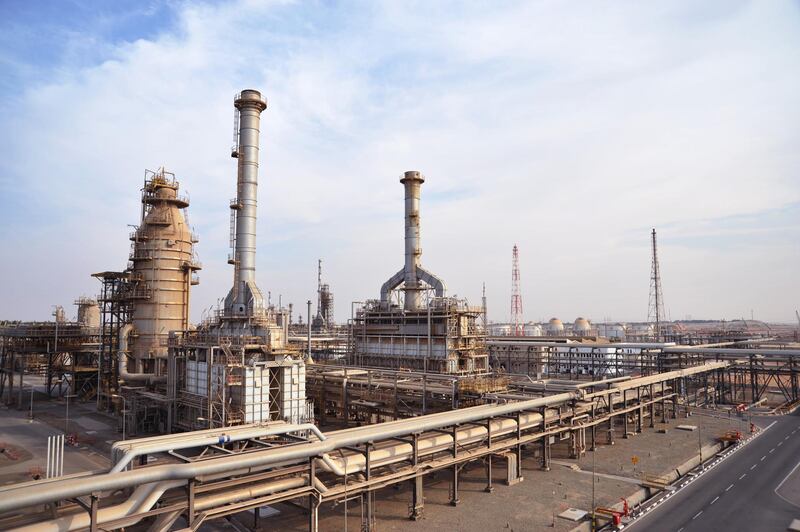Yesterday, the Abu Dhabi National Oil Company (Adnoc) and ADQ announced a partnership to boost the chemicals manufacturing industry in the UAE. The petrochemicals sector is referred to as “downstream” within the oil and gas industry as it relies on substances derived from the crude oil produced further up the chain.
ADQ, a holding company with a portfolio that includes non-oil sector companies like Abu Dhabi Ports, Emirates Steel, Etihad Rail and power and water Taqa, will provide vital infrastructure at Ruwais, in the Al Dhafra western region of Abu Dhabi that will enable the creation of more projects, attracting greater investment to a chemicals manufacturing centre located there.
Ruwais is set to become the world’s largest refining and chemicals complex by 2025 and such an ambitious initiative has not been halted despite the pandemic.
Covid-19 has disrupted international supply chains, driving countries to invest in homegrown products and produce. It has also provided an opportunity for nations to become more self-sufficient and to rely on their own resources to boost the economy. Initiatives such as this new partnership, which support Abu Dhabi-based companies, should be encouraged. The success of homegrown projects will boost economic activity and create more jobs in the long term even as technological, social and trade shifts take place, accelerated by the current health crisis.
The Adnoc-ADQ joint venture is the latest testament to the UAE’s determination to diversify and build resilience in its economy.
Its purpose is to support “the transformation of Ruwais into a global hub for industry and attract additional foreign direct investment to Abu Dhabi,” said Dr Sultan Al Jaber, Adnoc Group chief executive and Minister of Industry and Advanced Technology. Foreign investment is crucial for any country to thrive and it is yet another promising sign that the UAE remains a highly attractive destination for it, despite considerable global strains. Such a venture would not have been possible had it not been for consistent, years-long efforts to diversify the country’s revenues. For instance, in 2018, Adnoc invited international companies and institutions to invest $45bn (Dh165bn) to expand its downstream sector. This drive is proving even more crucial today, as the tourism and entertainment industries take a hit, and oil demand has waned since the onset of the pandemic.
Oil remains, however, a pivotal part of the UAE’s economy and significant investments are being made in this sector. Last month, a consortium of international institutions and funds signed a $20.7bn deal with Adnoc to invest in the emirate’s gas pipelines. The agreement, which will unlock $10.1bn in foreign direct investment, is the largest energy infrastructure deal of the year.
Even as the economic outlook for the next few months is bleak, there remain opportunities for growth.
The world has yet to recover from the financial downturn of the coronavirus pandemic, but new opportunities for homegrown projects offer a glimmer of hope. Governments around the world are taking action to boost their economies, tapping into their own unique resources. On Tuesday, leaders of the European Union announced they had agreed to create a €750 billion (Dh1.9 trillion) recovery fund to invigorate the continent.
In the Gulf, similar initiatives have been launched since the early days of the pandemic to support local economies and governments will continue to promote diversification efforts long after it has subsided.






